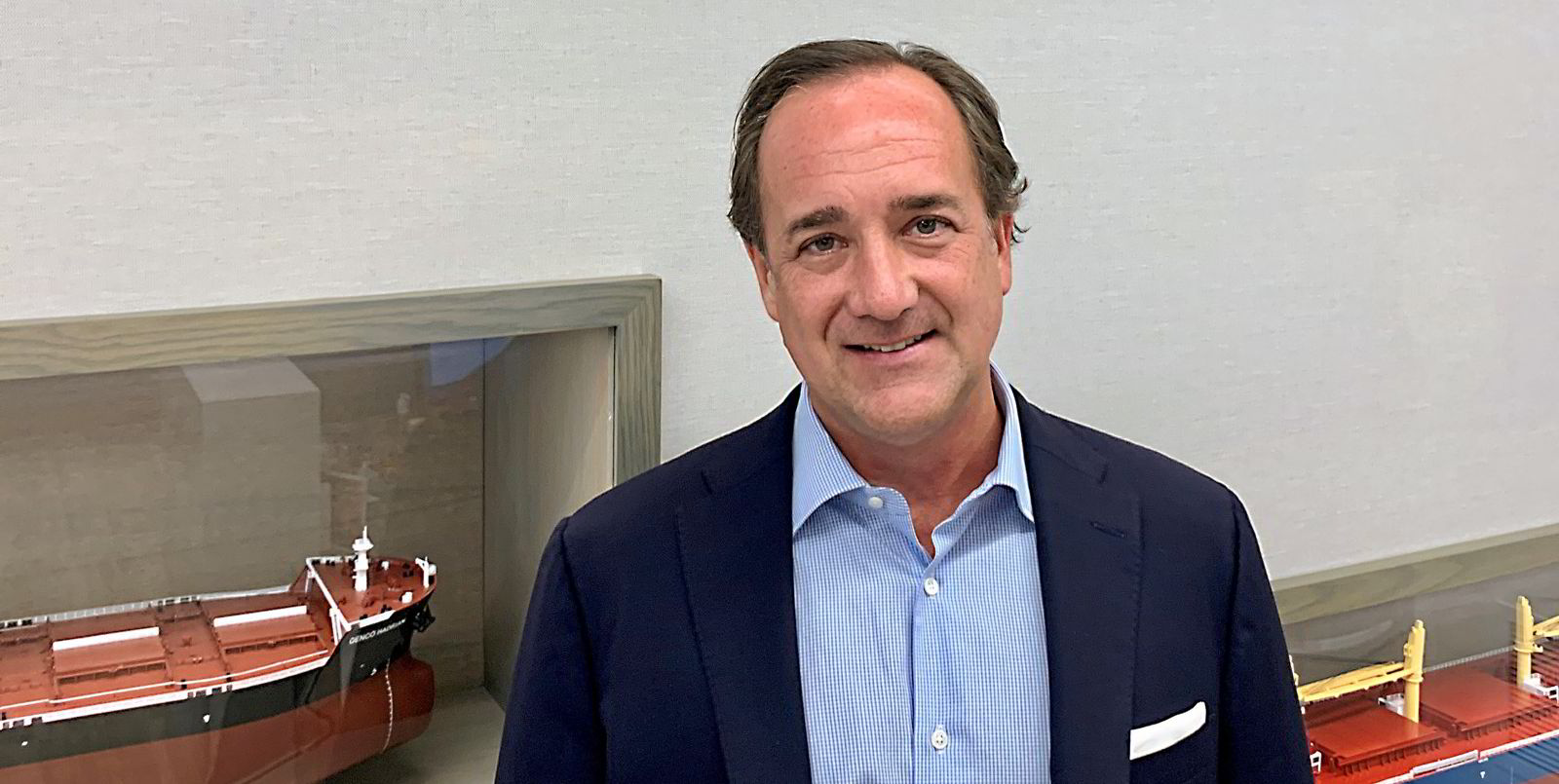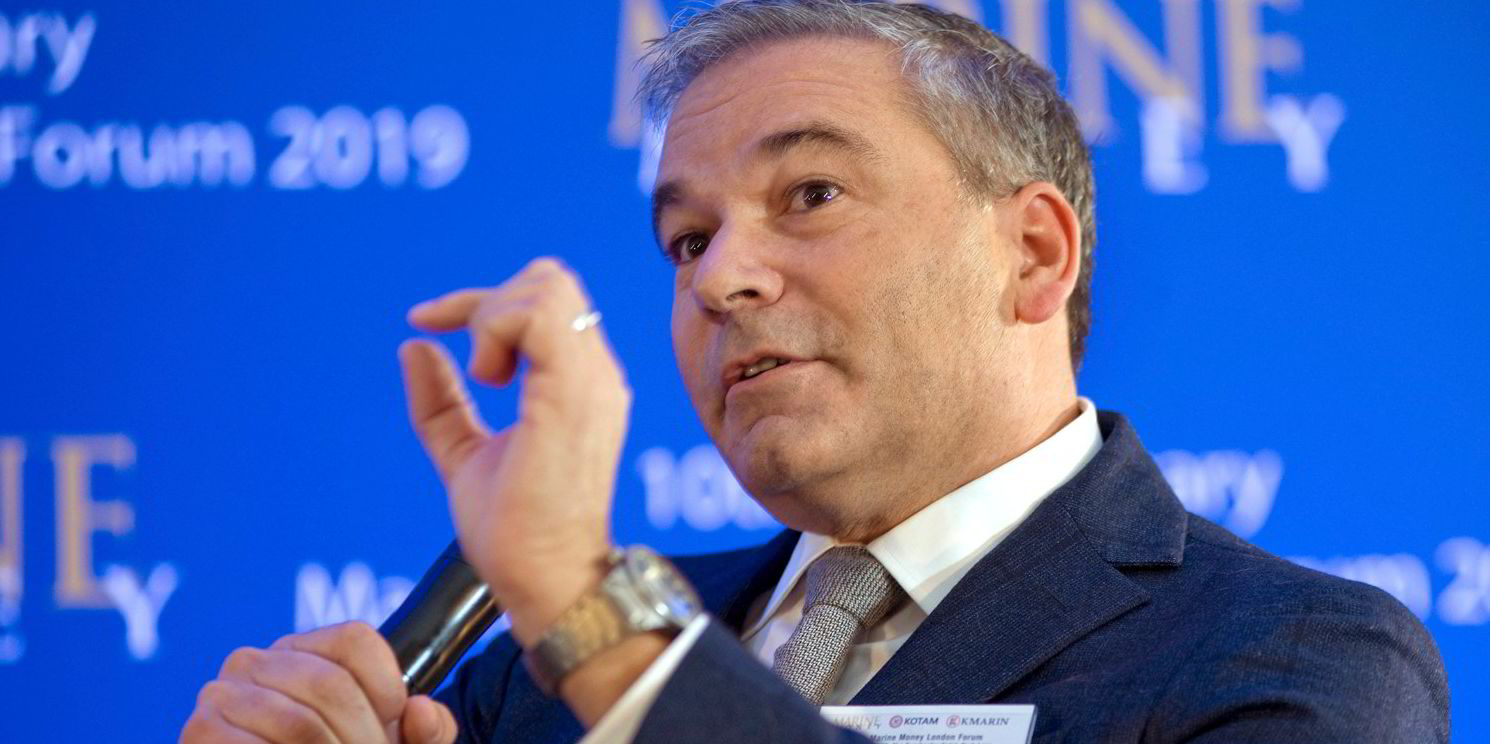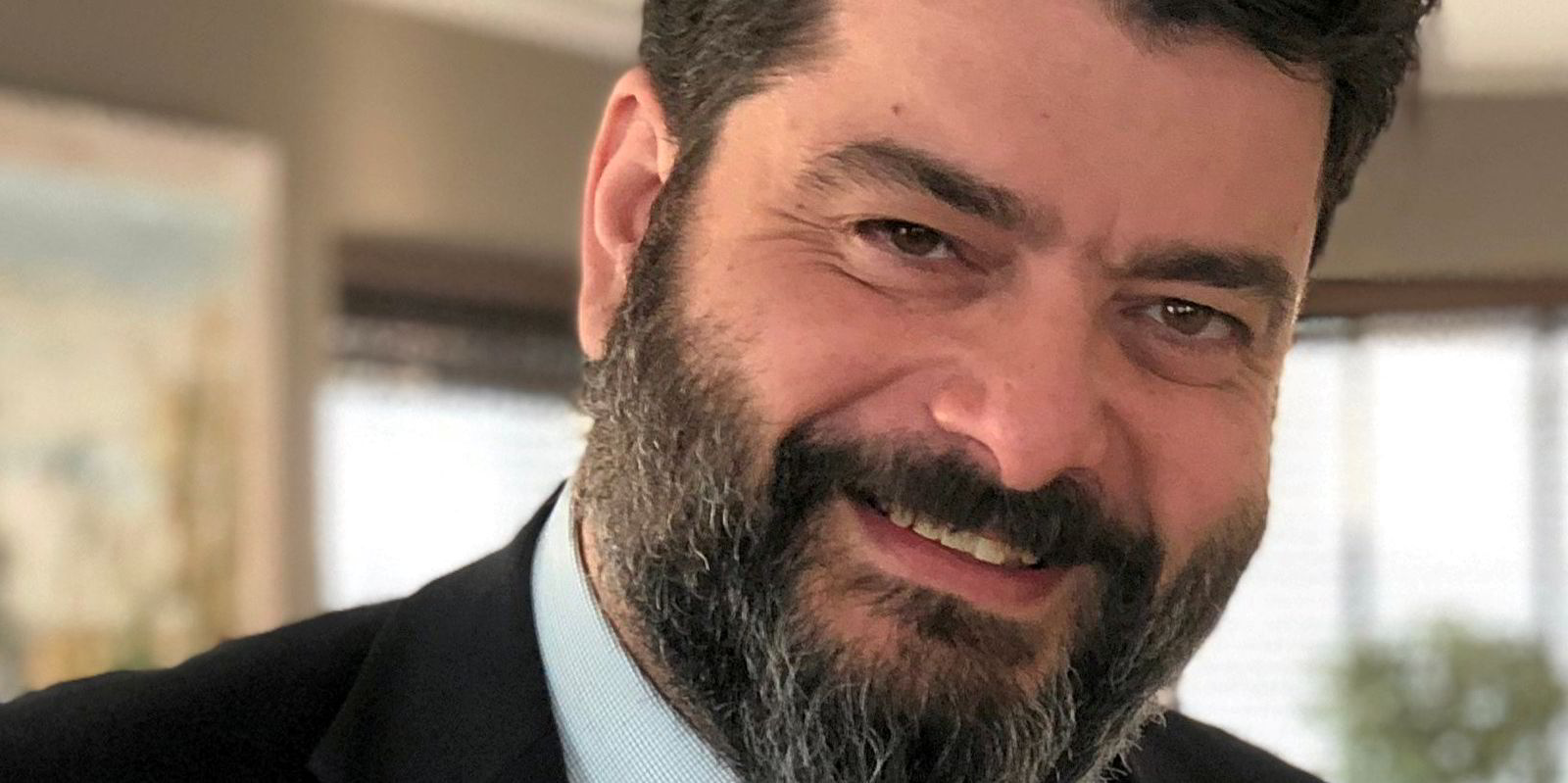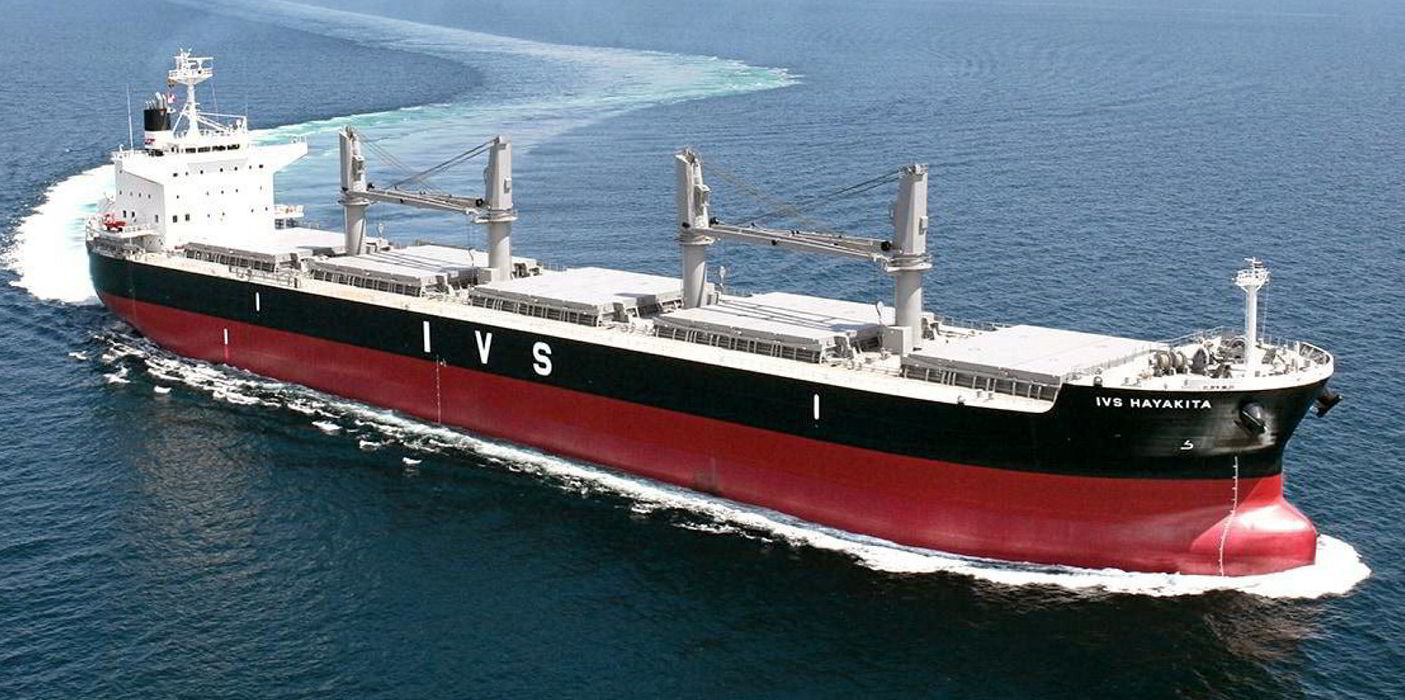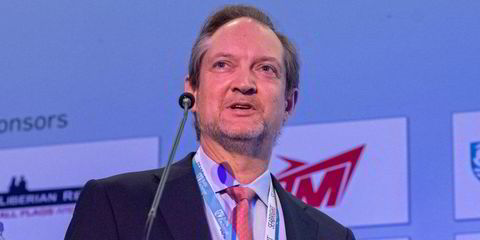Is a zero-debt public shipowner the way to attract "long only" financial institutions back to the sector and allow higher share valuations? Or is it simply the way forward for "lazy" management teams?
That was the debate that broke out on a shipowner strategy panel on Thursday at Marine Money's annual ship finance forum in New York, which was held live as the industry continues its comeback from Covid-19 precautions.
The zero-debt model was on the table because it is a key policy initiative for New York-listed Genco Shipping & Trading and chief executive John Wobensmith, who had to walk just a few blocks from his midtown Manhattan office to attend the session.
But he came under attack by Flex LNG chief executive Oystein Kalleklev, who questioned whether it was appropriate for a shipowner, particularly a public shipowner.
"If you want lazy management, the easy way is to have no debt," Kalleklev challenged, without naming Genco but leaving little doubt as to the context.

The LNG boss went on to add that debt helps distinguish effective management teams from bad ones. "If you don't have good management, you go bankrupt," he said.
Flex is actually looking to add more debt, he added, as "it's so cheap right now".
Wobensmith was not going to let the session end without a rebuttal, though he managed to laugh as he responded.
"I don't know how much you know about us, but certainly the management team at Genco is not lazy," Wobensmith said.
"The zero debt [model] is to get that sustainable dividend and be priced off that dividend yield rather than this crazy net asset value model."
He said this hadn't yet been tried in dry bulk.
"But I can't say enough about our lazy management team. That was fantastic. Thank you for that," Wobensmith quipped.
The Genco CEO's comments alluded to the bulker owner's new high-payout dividend model, which returns capital to shareholders after establishing a reserve to allow for items such as fleet renewal. The model is to take effect with this quarter's earnings and be paid in February.
Genco has paid off 45% of its 1 January debt load to date, Wobensmith said, reaching an $8,000 per day financial breakeven for the fleet. The goal is to reduce that further, with a target of getting debt to 60% of the fleet's scrap value, and a $7,000 break-even level, by year's end.
The New York company expects to get to zero net debt by the end of 2023, and possibly zero debt after that if all breaks right, he said.
"It's been a long time since you've seen long-only investors in shipping, with the exception of private equity," Wobensmith said.
"You want to be able to tell investors that you'll never turn that dividend off. It may fluctuate, but you'll never have to turn it off."
